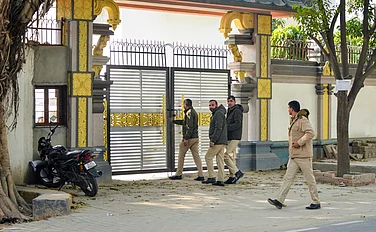A report from the Financial Times alleges that the government led by Prime Minister Narendra Modi is engaged in citizen surveillance through the acquisition of advanced surveillance tools from Israeli technology firms such as Cognyte and Septier. The report by FT claims that these surveillance systems have been set up at subsea cable landing stations, enabling India's security agencies to monitor the private data and communications of its vast population of 1.4 billion individuals. Septier, an Israeli company, is said to have supplied its lawful interception technology to prominent telecom groups, including Mukesh Ambani's Reliance Jio, Vodafone Idea, and Singapore's Singtel, as per the report.
Septier's promotional video outlines that its technology is capable of extracting "voice, messaging services, web surfing, and email correspondence" from designated targets.
Meanwhile, another Israeli enterprise, Cognyte, is also involved in supplying surveillance products within India. In 2021, Meta (formerly Facebook) alleged that Cognyte, among other companies, was involved in tracking journalists and politicians across various countries, although India was not specifically mentioned.
The Financial Times report cites statements from four individuals who have participated in submarine cable projects internationally. They indicated that India stands out due to its overt requirement for telecom companies to incorporate surveillance equipment at approved subsea cable landing stations and data centers, mandated by the government as a prerequisite for operations.
India is not the only nation with a more lenient legal interception framework. Comparable interception legislation exists in countries like Uganda and Rwanda. Back in 2013, revelations from Edward Snowden disclosed that intelligence agencies in the US and the UK were engaged in widespread surveillance through covert agreements with telecom companies.


























